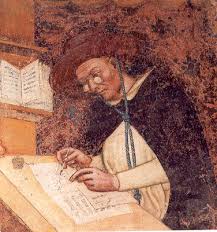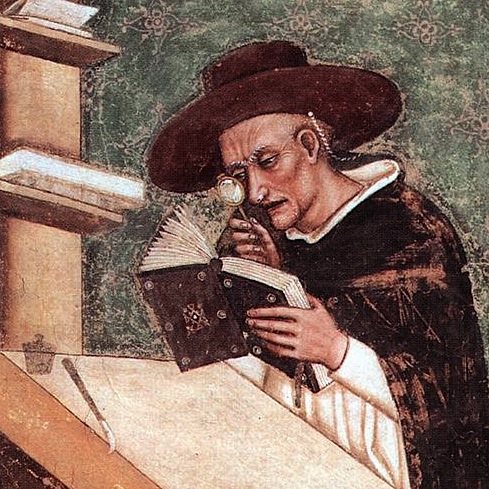JF Ptak Science Books Post 2156
A week ago I made a post here on the impact of the invention of eyeglasses in the history of art ("Robot Art of the Future and the Far-Sighted Past"). What I didn't address was considering eyeglasses as one of the greatest inventions in the history of the distribution of knowledge. Certainly there was th invention of paper, and the inspired creation of Gutenberg--and the Internet, which may be the greatest democratizer and distributor of them all. But what about the legions of people over thousands of years who had poor/disturbed vision and couldn't read at all? Granted for the great majority of that time there really wasn't much for the vast majority of people to read--literacy was not high, books/etc. were expensive and mostly for the privileged and ruling classes, but still, if you're eyesight was bad you had you get along with peering through emeralds or other crystals or pinhole lenses or squinting or extra-large type to make anything legible.
[Image: the earliest-known depiction of reading glasses in art occurs in this depiction of the studious Cardinal Hugh of Provence, sporting rivet specs, painted by Tommaso da Modena (1325-1379) in 1352, in a fresco at the Basilica of San Niccolõ in Treviso. The interesting bit here is that the Cardinal died in 1263, well before the earliest acknowledged appearance of spectacles. Adding spectacles was not an uncommon practice, as many academic/medical/scientific types who appeared in pre-spec era paintings and frescoes received some reworking to depict them with glasses for a more authoritative/scholarly look.]
[Another portrait in the same fresco depicts the French Dominican Cardinal Nicolas de Fréauville (1250-1323), and is the first depiction of teh use of a magnifying glass.]
Spectacles still weren't in universal use until relatively recently in the history of reading, not appearing far and wide until deep into the 19th century. There is an encyclopedia of people-of-supra-achievement with bad eyesight ((Aristotle, Borges, Goedel, Homer, Sam Johnson, Joyce, Keats, Kipling, Lear, Luther, Milton, Pope, Schopenhauer, Thurber, so on)--and it makes me wonder about all of the near-sighted folks who just couldn't make a go of it but for the want of spectacles or magnifying instruments.





Comments